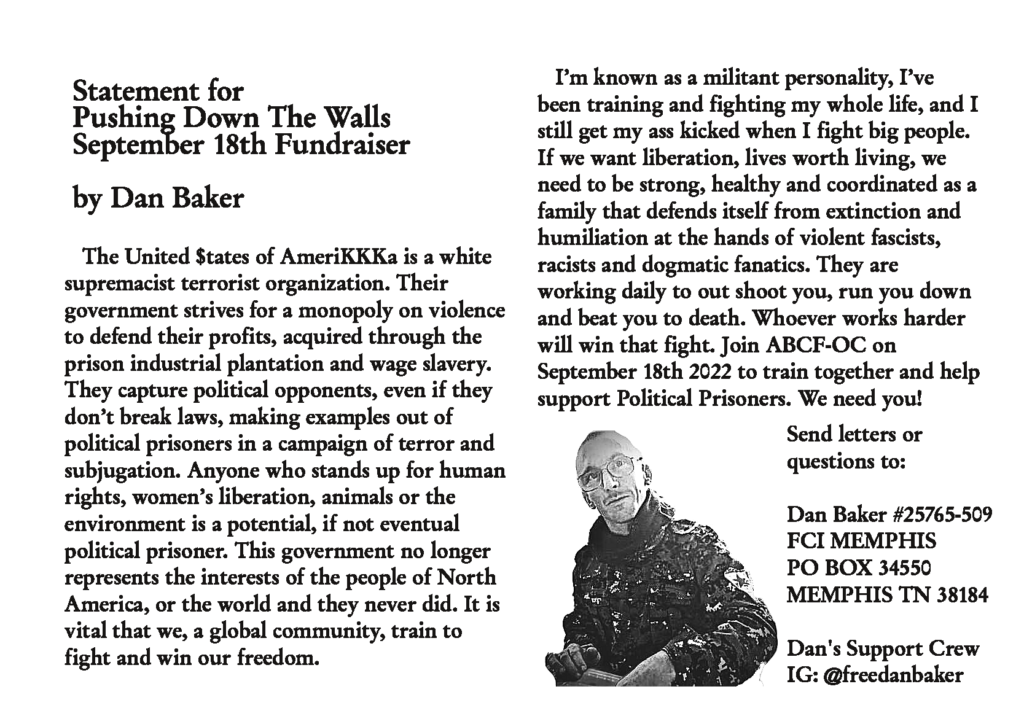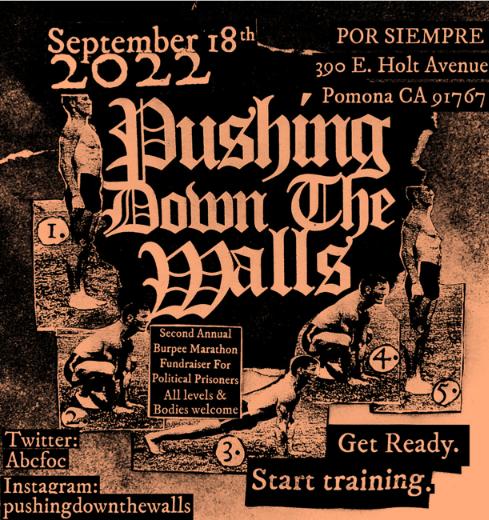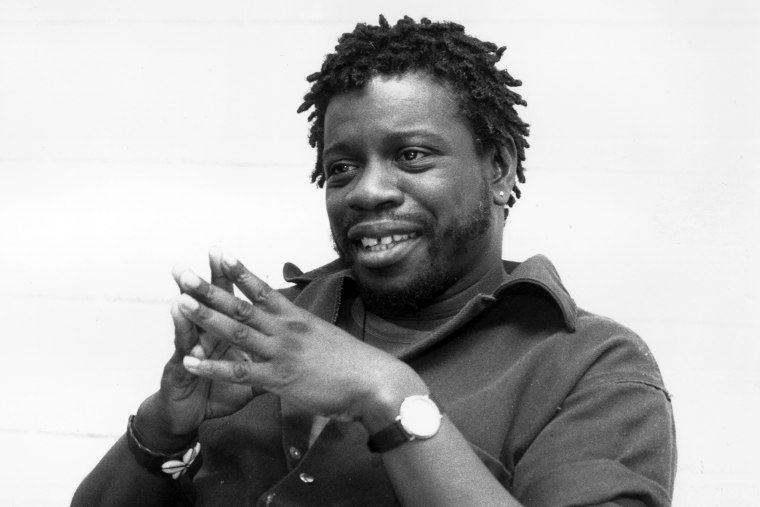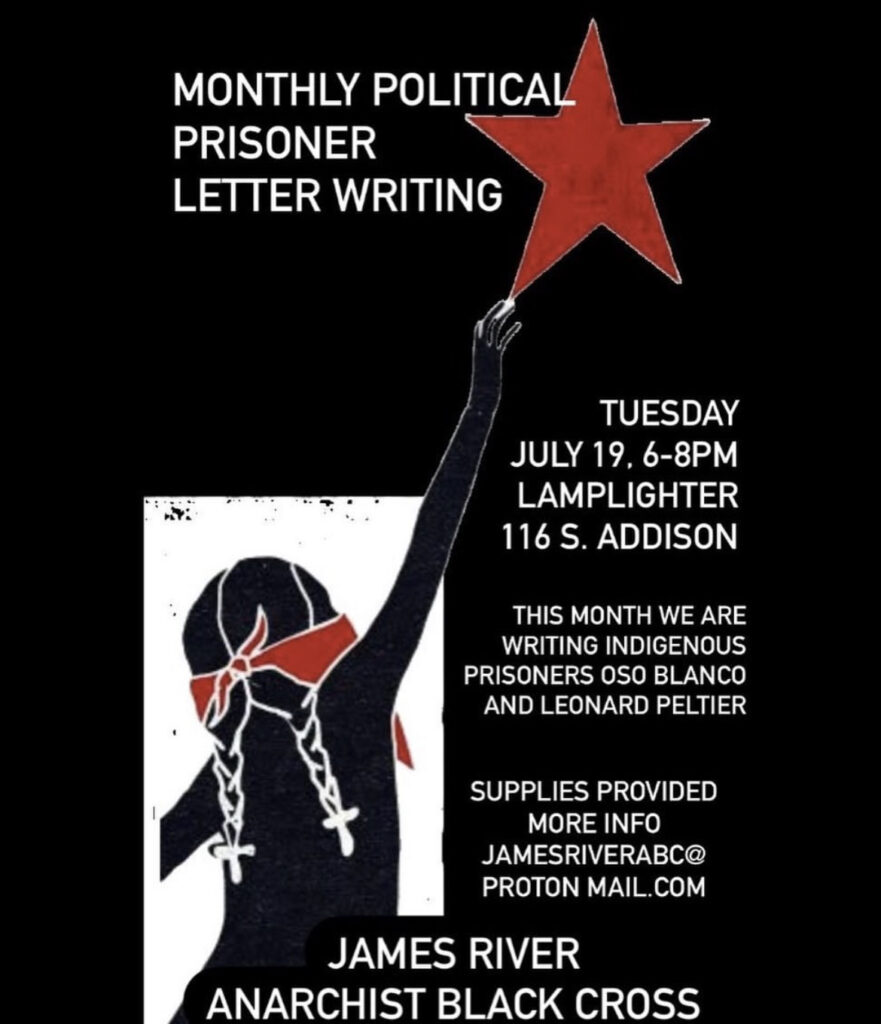A federal court sentenced Jessica Reznicek to eight years in prison for taking nonviolent direct action to stop the Dakota Access Pipeline. Her story is a sign of Big Oil’s desperation, according to one of her lawyers, Bill Quigley.
BY FRANCES MADESON
Real News Network
JULY 6, 2022
It takes a strong, steady hand and seven long minutes to burn a nickel-sized hole into the Dakota Access Pipeline (DAPL) with an oxy-acetylene welding torch. And yet, water protector Jessica Reznicek accomplished this feat on multiple occasions, up and down the pipeline, in Iowa and South Dakota during the spring of 2017. These punctures comprised just some of her deliberate acts of sabotage meant to delay DAPL’s completion and forestall the flow of oil under crucial, endangered Midwestern waterways. Drinking water for millions of North Americans has been put at risk by a pipeline that has still never received the proper permits and that, completely unrelated to Reznicek’s direct action efforts to disable the pipeline, leaked at least five times in the first six months of 2017.
For water protectors who live with the acute daily awareness that pipeline leaks are a known and common risk, a burning question persists: When will the masses of people move out of their comfort zones to protect clean drinking water and stand up for protectors like Reznicek who are fighting an asymmetrical battle against powerful oil oligarchs? When DAPL operator Energy Transfer spills a couple million gallons of thick black ooze (known as “drilling mud”) on a pristine wetland and is fined $40 million by the Federal Energy Regulation Commission, none of the corporate executives lose their liberty in a federal prison for a single day, though the environmental impacts of their reckless practices will linger for generations. Five years after taking action to prevent such long-lasting destruction, however, Jessica Reznicek is serving out an excessively long prison sentence. It takes a stout, steadfast constitution to contend with the consequences that Reznicek has faced for her nonviolent civil disobedience—consequences meted out by a federal judicial system that, to put it mildly, doesn’t always play or adjudicate fairly.
For water protectors who live with the acute daily awareness that pipeline leaks are a known and common risk, a burning question persists: When will the masses of people move out of their comfort zones to protect clean drinking water and stand up for protectors like Reznicek who are fighting an asymmetrical battle against powerful oil oligarchs?
Reznicek pled guilty to a single charge of “conspiracy to damage an energy facility,” but was nevertheless slapped with an absurdly onerous sentence: three years incarcerated, three years of federal supervision afterward, and an obligation to pay pipeline operator Energy Transfer $3.2 million in restitution. Thanks to a provision in the Patriot Act, however, things got worse for Reznicek. Southern District of Iowa Judge Rebecca Goodgame Ebinger was able to apply a “domestic terrorism enhancement” to her sentence, turning three years of prison into eight and branding Reznicek a terrorist for life. None of this seemed right or just, neither to herself nor to future protestors who would be saddled with a terrible legal precedent, so Reznicek appealed.
The appeal was denied.
On June 6, a three-judge panel in the 8th Circuit Court of Appeals issued an unsigned decision that reads like a one-two sucker punch. First, the decision failed to address the appeal’s main question: namely, did Judge Ebinger properly apply or misapply the “domestic terrorism enhancement”? Second, it upheld the 8-year sentence anyway.
The day after the decision was handed down, the Department of Homeland Security issued its latest warning about domestic terrorism, in which it noted that “The United States remains in a heightened threat environment” and that DHS expects said environment to become more “dynamic” between now and November. It would be reasonable to assume that most of these domestic terrorist threats will continue to come from the far right, yet DHS’s list of potential targets of domestic terrorist attacks notably specifies “critical infrastructure”—which includes fossil fuel pipelines—along with racial and religious minorities. The ink was not yet dry on the decision regarding Reznicek’s case before DHS was normalizing the supposed equivalency between puncturing a pipeline or disabling a bulldozer and mass shootings like the one carried out by white supremacist Payton Gendron at a Tops grocery store in Buffalo, New York, in May.
As an amicus brief filed by the Center for Constitutional Rights (CCR) in support of Reznicek’s appeal notes, there is murk around the various legal definitions of domestic terrorism and the safeguards guiding their use in the United States. But as the appellate brief made clear, simply damaging oil and gas infrastructure operated by a private corporation, while still a crime, is not an act of terrorism: “Reznicek’s offense did not qualify as a federal crime of terrorism because it was not calculated to influence or affect the conduct of government by intimidation or coercion, and was not retaliation against government conduct.” As anyone can hear in the oral arguments held on May 13, the judges sounded skeptical about whether Reznicek’s actions crossed the threshold, based on these criteria, to qualify them as acts of terrorism. Nevertheless, they opted to remain silent on the issue in their decision, letting Ebinger’s enhanced sentence stand.
Thanks to a provision in the Patriot Act, however, things got worse for Reznicek. Southern District of Iowa Judge Rebecca Goodgame Ebinger was able to apply a “domestic terrorism enhancement” to her sentence, turning three years of prison into eight and branding Reznicek a terrorist for life.
As the ACLU notes on their website, Section 802 of the USA Patriot Act defines domestic terrorism thusly:
“A person engages in domestic terrorism if they do an act ‘dangerous to human life’ that is a violation of the criminal laws of a state or the United States, if the act appears to be intended to: (i) intimidate or coerce a civilian population; (ii) influence the policy of a government by intimidation or coercion; or (iii) to affect the conduct of a government by mass destruction, assassination or kidnapping.”
Jessica Reznicek did damage private property and publicly accepted responsibility for her actions, but she took great care to make sure no human life was put at risk. There are plenty of laws stipulating punishments for damaging property, but damaging property on its own is not terrorism.
It’s worth noting that the United States would likely not have had the opportunity to prosecute Reznicek if she hadn’t come forward. She was never caught in the act, nor was she tied to the sabotage by skillful detective and forensics work carried out by any law enforcement agency or private security force: she’d eluded them all. But on July 24, 2017, she and Ruby Montoya, a fellow climate activist and member of the Catholic Worker Movement, alerted the public to their joint acts by holding a press conference and issuing a claim of responsibility. In it, they detailed what they did, how they did it, and explained what had moved them to step so boldly outside the bounds of the law:
We acted from our hearts and never threatened human life nor personal property. What we did do was fight a private corporation that has run rampantly across our country seizing land and polluting our nation’s water supply. You may not agree with our tactics, but you can clearly see the necessity of them in light of the broken federal government and the corporations they protect. We do not anticipate a fair trial…
They were right not to anticipate a fair trial. But Reznicek’s sentence goes beyond mere unfairness; it is a clear, heavy-handed attempt to discourage protestors from taking any action that could be construed, however obliquely, as terrorism. In general terms, Reznicek’s legal and support team view Ebinger’s harsh sentence and the ensuing aftermath as the bidding of an oil and gas industry that, until its dying breath, will resort to whatever measures it needs to to make sure nobody gets in their way. Since the initial sentencing, her legal team has been circulating a petition, which expresses a guiding sentiment: “What happens to Jessica, happens to all of us.” Now, members of that legal team are weighing their best options for making another attempt to overturn this dangerous precedent and obtain a more proportionate sentence. These options include: asking for a rehearing by the entire 8th Circuit, composed of 11 judges (not just the three who failed to clarify the law in their ruling); directing an appeal to the US Supreme Court; and/or seeking clemency from President Biden.
“We acted from our hearts and never threatened human life nor personal property. What we did do was fight a private corporation that has run rampantly across our country seizing land and polluting our nation’s water supply. You may not agree with our tactics, but you can clearly see the necessity of them in light of the broken federal government and the corporations they protect.”
JESSICA REZNICEK AND RUBY MONTOYA, CLIMATE ACTIVISTS AND MEMBERS OF THE CATHOLIC WORKER MOVEMENT
Bill Quigley, renowned civil rights attorney and one of Reznicek’s lawyers, likens Reznicek’s acts to those of 19th-century abolitionists who broke the law to free slaves. Regardless of what the court does or says, Quigley believes history will honor her for her selfless courage. Though he takes his cues from his client, he is determined to fight this attempt by the state to curtail protest until there’s no more fight to be had. On behalf of The Real News, I spoke with Quigley about the high-stakes battle to disestablish this terrible legal precedent and to overturn Reznicek’s unjust prison sentence.
Quigley also represents water protectors who protested DAPL’s construction in Louisiana, the L’eau est la Vie Bayou Bridge defendants, all of whom were charged with felony trespassing under the state’s “critical infrastructure” bill passed in 2018. While Quigley succeeded in getting all charges dropped for the Louisiana defendants, the felonies hung over their heads for two years, which amounted to a punishment by process.
My talk with Quigley tracks events from the moment Judge Ebinger handed down her perturbing sentence last year to June 3, 2022, just three days before the most recent decision was handed down.
Frances Madeson: Bill, I shouldn’t be surprised. I was in the Bismarck, North Dakota, courtroom when #NoDAPL water protector Red Fawn Foster was sentenced to 57 months and remanded to Bureau of Prison custody. The FBI had sicced an informant on her, who’d seduced her into becoming lovers; it was his gun they’d found in her jacket. There is no low they won’t stoop to when it comes to #NoDAPL water protectors. It is bitterly anathema to think that a water protector’s name could be linked for posterity to this attack on protest.
Take us, please, behind the scenes—to the moment you were all sent down the “domestic terrorism” rabbit hole.
Bill Quigley: Honestly, it didn’t become real to me personally until the judge started talking about it at the sentencing. It had been something that was in the paperwork, we’d put some materials in the brief about why it wasn’t appropriate (one of many points in a long document), and the government had made a casual reference to it. But I never ever believed that Jessica’s actions constituted terrorism, and I never believed that any judge would think that her actions did. As the judge was seriously talking about it, I was really shocked and stunned, and extremely disappointed.
At one point, the judge actually did say that, in the regular course [of] this kind of case, the [sentencing] guidelines were somewhere around 36 to 40 months, which is about what we had hoped for. Not “hoped for,” but expected. We hoped for less than that, honestly. And when [the judge] talked about that, I thought, “That’s where we’re going”; but then she went on from there and I thought, “Really? You see this as an attempt to intimidate the government? Really, to intimidate the United States government?” [My reaction] was just unbelief.
“I never ever believed that Jessica’s actions constituted terrorism, and I never believed that any judge would think that her actions did. As the judge was seriously talking about it, I was really shocked and stunned, and extremely disappointed.”
BILL QUIGLEY, CIVIL RIGHTS ATTORNEY AND ONE OF JESSICA REZNICEK’S LAWYERS
I was one of the two lawyers for Jessica in the courtroom at the time. There were quite a few people that had come to support her, and she was shocked, I was shocked, they were shocked. But then here was the thing: The judge was saying, “You qualify for terrorism, so I’m going to essentially double your sentence, but I’m also gonna let you stay out without a bond until you have to report to prison in another couple of months,” and it’s like… would you do that with a terrorist? You wouldn’t let a terrorist stay out on their own recognizance and report on their own volition to the prison. The disconnect between the word “terrorism” and the actions, and the treatment of her by the court, just didn’t add up.
Jessica had told the court that the plan was that they intended to stop the pipeline—there’s no doubt about it. They tried to stop the continued construction of the pipeline, property was damaged, and they were somewhat successful. But they went to great lengths to make sure that no person got hurt.
In the United States, for the last several years, there have been thousands of people arrested for nonviolent civil disobedience, and of those thousands, certainly dozens, if not hundreds, have actually done some damage to property. The idea that damage to property plus protest could equate to terrorism—it’s something that went like lightning through the entire protest community across the country.
“In the United States, for the last several years, there have been thousands of people arrested for nonviolent civil disobedience, and of those thousands, certainly dozens, if not hundreds, have actually done some damage to property. The idea that damage to property plus protest could equate to terrorism—it’s something that went like lightning through the entire protest community across the country.”
BILL QUIGLEY, CIVIL RIGHTS ATTORNEY AND ONE OF JESSICA REZNICEK’S LAWYERS
People have advocated bring[ing] terrorism charges against Black Lives Matter protesters, against environmental protesters, anti-nuclear protesters, and the like. But to me that was always just hyperbole, and not something to be taken that seriously. But [Reznicek’s case] shows, I think, that we had underestimated the power of the United States government to try to crush any sort of civil disobedience, even if it was nonviolent.
Immediately upon leaving the courtroom we gathered in a circle outside the courthouse and talked about this. Jessica felt, and it was very clear at that point, that we were really going to work on this terrorism enhancement. If she had been given two or three years, I’m not sure if she even would’ve wanted to appeal, but with this idea of eight years, and the signal that it sends to other protesters around the country, she was very much open to appeal.
Frances Madeson: One of the outstanding aspects of your appeal was the collective strength and power of the four amici curiae briefs (friend of the court briefs) from the Climate Defense Project, the Center for Constitutional Rights, the Water Protector Legal Collective and National Lawyers Guild, and Catholic Social Action. How did that strategy evolve?
Bill Quigley: We started putting together a team of people to talk about the appeal. The team was me, the federal public defender, and a special person that was doing appeals for them, and we talked to lawyers and legal groups around the country. I started talking about the importance of its impact not just on Jessica, but all the other protesters, and that’s where the idea of the amicus briefs emerged.
It’s something that’s done very rarely. There are thousands of appeals, and most of the time it’s one person appealing one thing, or one corporation, but it’s pretty rare to get a large number of people and legal organizations to join in and talk about how important the case is. One of them, the Catholic lawyers’ brief—they reached out to us out of the blue and said, “We’re a bunch of Catholic lawyers in Kentucky and we think it’s important for the court to realize just how prominent this idea of respect for the Earth is in Catholic social teaching,’ and they wanted to do an amicus brief, and Jessica said yes.
Frances Madeson: Maybe it wasn’t the most polished of the four briefs, but in some ways I felt it was the most passionate. Perhaps because I read it on the day therevelations around the hidden graves at Indian boarding schools in the US came to light, but some of its verbiage seemed to gesture toward amends to Indigenous people for past harms the Church had caused them. I was also struck by how seriously it took the need to vigorously defend the Catholic Workers from an association with terrorism.
“People have advocated bring[ing] terrorism charges against Black Lives Matter protesters, against environmental protesters, anti-nuclear protesters, and the like. But to me that was always just hyperbole, and not something to be taken that seriously. But [Reznicek’s case] shows, I think, that we had underestimated the power of the United States government to try to crush any sort of civil disobedience, even if it was nonviolent.”
BILL QUIGLEY, CIVIL RIGHTS ATTORNEY AND ONE OF JESSICA REZNICEK’S LAWYERS
Bill Quigley: There are legitimate concerns about terrorism, and terrorism is unfortunately a fact of life in our world these days. But the concept of terrorism is being badly abused in this case. I’m sure the people who originally inhabited the land before the English, French, and Spanish took it over considered what happened to them terrorism. It’s a concept that’s bandied about lately, and the court really runs the risk of diluting the concept if you just apply it to everyone you don’t agree with politically.
And CCR’s brief had other points in terms of international context, and we felt that all of the briefs [together] would help the court understand that this is just much more than an individual sentencing issue. Not everybody thinks or agrees that amicus briefs are helpful; some people think that in special criminal cases the best thing to do is keep quiet and focus on the technicalities and don’t try to show their ripple effects and that sort of thing. But Jessica very much wanted to respond to the concerns of her supporters, and to publicize these parts of it as well.
If she has to serve eight years in prison, she’s going to do that, and she’s going to do that as well as anybody can do it. She’s already spent a fair amount of time in there—in the summer it’ll be a year. But the hope is that the amicus briefs will educate the court and the public to the larger importance of this beyond the significance of how many years Jessica Reznicek spends in prison.
Frances Madeson: The courts being political institutions, were [the briefs also meant] to demonstrate a countervailing force to the fossil fuel industry?
Bill Quigley: Yes. Whenever you go for an appeal, the chances of winning are low. By the time you get to the court of appeals in the federal system, you have a less than 50-50 chance to win. The government gets the close calls. So [the briefs are partly] to show that this is not just a private pipeline corporation at issue, but the government is trying to do something that is very scary not just to Jessica Reznicek, but to lots of other people as well.
“There are legitimate concerns about terrorism, and terrorism is unfortunately a fact of life in our world these days. But the concept of terrorism is being badly abused in this case… It’s a concept that’s bandied about lately, and the court really runs the risk of diluting the concept if you just apply it to everyone you don’t agree with politically.”
BILL QUIGLEY, CIVIL RIGHTS ATTORNEY AND ONE OF JESSICA REZNICEK’S LAWYERS
Frances Madeson: Like so many others, I follow her progress on Free Jessica Reznicek and on social media, but sometimes it can be hard to tell how she’s doing.
Bill Quigley: Jessica is a very gregarious person and a very positive person and she has made a lot of friends in prison. At the same time, prison is set up to harm the spirit, and the prison has been locked down with COVID—and she has had COVID. Lockdowns are particularly tough because you don’t get to go outside, you don’t get to do any sort of recreation.
She has made it very clear to me and others that she respects the way that her prison is operated, and its place in the Bureau of Prisons, and she’s doing everything she can. She’s enrolled in college courses, she has a job there (she’s helping to train animals to assist people with disabilities), and she is taking every opportunity to maximize the purposefulness of her time there.
She’s overwhelmed by the numbers of letters and cards that she’s getting, and she just literally cannot respond to everyone who is in touch with her. But she does appreciate it.
I think there is growing support for her across the country, but also internationally. There have been articles published in Germany and many other countries about what’s going on here, and she has been getting tons of support from people who are really concerned about the future of our planet. And not everybody is saying she shouldn’t have gone to prison; but what they are saying is that it is ridiculous to send somebody to prison for eight years for doing that stuff, and to label her a terrorist for doing it.
The other part about it that’s pretty unusual is the amount of support she’s getting from these Catholic sisters that are up there. She tries to be in contact with one of them as a spiritual advisor every week, and they exchange letters regularly. She is working really hard to try and keep her spirits up and make this time as productive as possible. But on occasion it’s overwhelming, hurtful, and depressing, especially over this last winter when it was really cold, dark, and they couldn’t go outside, and they were locked down, and they weren’t allowed to mix much inside the prison. That was really hard. Some long-time political prisoners have said that last winter was the hardest time they had ever spent in prison because of the isolation and the COVID.
Frances Madeson: How is she coping with being labeled a domestic terrorist?
Bill Quigley: Jessica was never charged with terrorism, she never pled guilty to terrorism, and now, after everything is all over, she’s being labeled a terrorist. It’s just in the terrain of Animal Farm; it doesn’t really make sense, but if people keep repeating it often enough…
I have noticed that people say she should pay a price for destroying property, and she’s going to pay a price. There are laws to punish people for destroying pipelines and property—she pled guilty to those. But she was never even charged with terrorism, and the idea that they come up with it at the 11th hour—it’s just very unfair, and it’s a real overkill by the government, and what I would call hyper- criminalization.
She was ready to take the consequences, she took the consequences, and then on top of it they add a whole other layer of consequences, which is just not fair and not logical. And it has a chilling effect [on] what other people understand about the limits of protest.
“Jessica is a very gregarious person and a very positive person and she has made a lot of friends in prison. At the same time, prison is set up to harm the spirit, and the prison has been locked down with COVID—and she has had COVID.”
BILL QUIGLEY, CIVIL RIGHTS ATTORNEY AND ONE OF JESSICA REZNICEK’S LAWYERS
There is a conscious effort across the United States to hyper-criminalize people who interfere with pipelines because pipelines are so controversial right now. People are protesting them so broadly—from nuns, to Native Americans, to climate activists, to business people, elected officials—everybody. Because these are sort of the dying days of the pipeline industry, and they know it, and they’re trying to get as many pipelines in the ground in as many states as they can. They’re going to be stopped and they know that, so they’ve made a conscious effort to hyper-criminalize protesting them.
It’s a scary time for people who protest, and not everybody is going to sit down and figure out in advance what they are going to do and how they’re going to do it. But it’s clear that the government is really trying to clamp down hard on protesters who do anything other than stand with a sign on the sidewalk. Oil and gas and the government will do whatever they are allowed to do. They’re not gonna stop, they’re going to try and be more aggressive in other ways. If they can do this to [Jessica], and the court sanctions it, what does that mean for all the other people?
In order to stop them, we have to push back, and pushing back means taking public stances. It means working the legislature, fighting in the courts; it means lots of things.
The CCR brief was really important in showing the international context and where this stuff comes from, and [it] lays out why it’s important to not let the courts cheapen the idea of what terrorism actually is—and, especially, to not let the courts use it as a bludgeon against people who are doing nonviolent civil disobedience.
They would not have done this 20 years ago. If they get away with this [now], we really have to wonder: Where are they going to go next?








